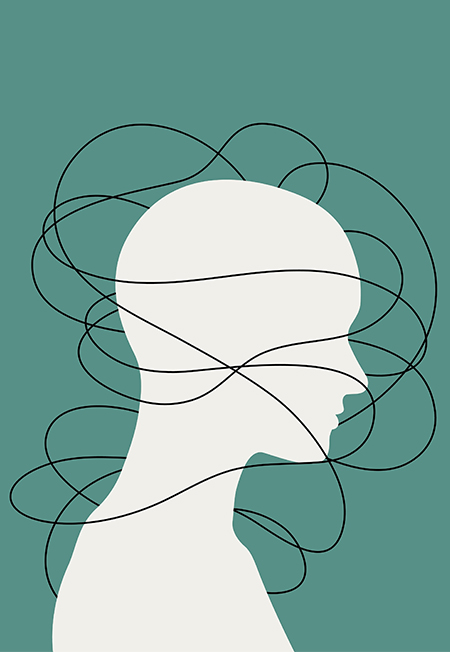 Life is beginning to feel unmanageable.
Life is beginning to feel unmanageable.
It’s been harder to remember all the tasks that you have to do throughout your day.
Missing meetings or forgetting chores not only has its initial consequence, but it can also lead to self-criticism and a decreased sense of confidence.
An occasional “slip-up” is common, but this feels different.
Forgetting details and events can strain relationships and professional connections.
Maintaining focus seems out of reach.
What is ADHD?
ADHD (Attention Deficit/Hyperactivity Disorder) has two predominant presentations.
Inattentive presentation is characterized by difficulty maintaining focus, memory, and engaging in tasks.
The hyperactivity/impulsivity presentation is characterized by rapid speech, difficulty controlling energy levels, and feelings of restlessness.
There is also a mixed presentation displaying inattention and hyperactivity/impulsivity aspects.
 All presentations of ADHD are deeply distressing.
All presentations of ADHD are deeply distressing.
ADHD can affect one’s ability to maintain an occupation or academic path, negatively impact relationships, and hinder the building of social connections.
ADHD can also result in distressing emotions, such as a feeling of helplessness and inability to navigate one’s life. Mood swings and irritability are associated with a distracted baseline state and can also arise from the effects of common ADHD medications.
How can therapy help?
In therapy, we discuss and process all the ways that ADHD is impacting your emotions, relationships, and academic/career-oriented goals.
A primary goal with ADHD treatment is to increase your ability to focus, direct attention, and channel energy into productive avenues. This can be done alongside medication or without medication by developing skills with mindfulness/meditation.
I have personally witnessed many clients reclaim their ability to concentrate, regulate emotions, and reduce the distress associated with ADHD by practicing mindfulness/meditation with consistency.
Please refer to the Mindfulness Meditation page for more information.
Here is some supporting research.
“A recent review published in Behavioural Neurology suggests that mindfulness could be a promising way to improve attention-deficit hyperactivity disorder (ADHD) in adults.
The study examined several studies of mindfulness-based interventions aimed at treating ADHD and narrowed down those that were of good quality. Researchers examined 13 studies, with 753 participants who had an average age of 35. All these studies found that mindfulness techniques were helpful as part of treatment for ADHD.
Non-medication treatment options for ADHD are a very important consideration. Medications that treat ADHD often have medical and psychological side effects both in the short- and long-term. For example, stimulants that treat ADHD can make people more irritable and moodier than usual and come with risks to heart health as well, including irregular heart rhythms, high blood pressure, and higher heart rates. Over time, the same dose of medication may not be as effective as before, leading one to need higher doses over time.”
You don’t have to live with distress arising from ADHD.
In therapy, we begin by unpacking your experiences and processing emotional distress.
With an understanding of your unique situation, tendencies, and challenges, we will develop an individualized set of skills and routines to help you meet the demands of your life.
Once you begin to experience a sense of control and mastery, your confidence and belief in your ability to thrive are bound to follow.
Contact me today, so we can discuss how I can help you overcome the challenges you face with ADHD.

